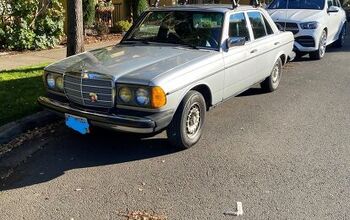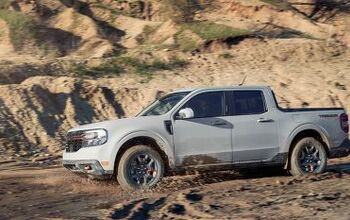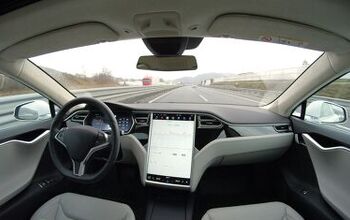Best Selling Cars Around The Globe: Haiti Hangs On To Work Horses
After Afghanistan and Norway, we fly over the Atlantic to land in Haiti so I can share with you where the car market is, 18 months after the devastating earthquake of February 2010.
If you were a tourist in Haiti or part of the emergency personnel flown to the island for the earthquake, then you may already know which cars are popular there (although it would have been the least of your worries!) so I suggest you go directly to my blog where I cover 154 other countries all around the planet. You will love it, I promise!
Right so the huge reconstruction effort the country has to go through means pick-ups, or work horses as they are sometimes called, are the favorite choice for anyone who has enough money to purchase a new vehicle. But which ones are the most successful?
Oh and for those who are not yet familiar with my methodology, here goes. When there is no official car sales data, as is the case for Haiti, I don’t despair. Far from it. I go and have a little chat with my old mate YouTube… It’s amazing the number of street videos of any random city people innocently upload on the internet! I focus on the most recent videos of the most important cities of any given country and after a couple of hours of research a pretty good picture of the best selling cars there starts to appear… Not perfect, but much better than nothing!
And the result of Haiti streets observation shows that as in neighboring Dominican Republic, Haitians seem to be fond of Nissan pick-ups, with the Nissan Frontier really really popular in its last few generations.
However it seems the Ford Ranger has taken the lead over the last 12 months in Haiti, with many of them roaming the streets of Port-au-Prince. Pick-ups are a great help in these troubled time as the main work tool for any reconstruction worker.
Aside from pick-ups, another Haitian car tradition seems to be buying lots of Suzuki/Chevrolet 4WD’s. The Chevrolet Vitara and Grand Vitara, sold under the Suzuki brand outside of South America, can be seen very frequently in the streets of Port-au-Prince.
4WDs are the logical choice in a country where previously paved roads are left with little maintenance and off-roading is more a necessity than a leisurely past-time… At that game Japanese and Korean models win: the Daihatsu Terios, Mazda Bt-50, Toyota Hilux, Hyundai Tucson and Mitsubishi L200 all seem to do well in Haiti.
However when it comes to decorating prizes, Isuzu vans seem to be the best bet! Where else but in ever-happy Haiti…
Matt Gasnier, based in Sydney, Australia, runs a blog named Best Selling Cars, dedicated to counting cars all over the world.
More by Matt Gasnier
Latest Car Reviews
Read moreLatest Product Reviews
Read moreRecent Comments
- Slavuta CX5 hands down. Only trunk space, where RAV4 is better.
- Kwik_Shift_Pro4X Oof 😣 for Tesla.https://www.naturalnews.com/2024-05-03-nhtsa-probes-tesla-recall-over-autopilot-concerns.html
- Slavuta Autonomous cars can be used by terrorists.
- W Conrad I'm not afraid of them, but they aren't needed for everyone or everywhere. Long haul and highway driving sure, but in the city, nope.
- Jalop1991 In a manner similar to PHEV being the correct answer, I declare RPVs to be the correct answer here.We're doing it with certain aircraft; why not with cars on the ground, using hardware and tools like Telsa's "FSD" or GM's "SuperCruise" as the base?Take the local Uber driver out of the car, and put him in a professional centralized environment from where he drives me around. The system and the individual car can have awareness as well as gates, but he's responsible for the driving.Put the tech into my car, and let me buy it as needed. I need someone else to drive me home; hit the button and voila, I've hired a driver for the moment. I don't want to drive 11 hours to my vacation spot; hire the remote pilot for that. When I get there, I have my car and he's still at his normal location, piloting cars for other people.The system would allow for driver rest period, like what's required for truckers, so I might end up with multiple people driving me to the coast. I don't care. And they don't have to be physically with me, therefore they can be way cheaper.Charge taxi-type per-mile rates. For long drives, offer per-trip rates. Offer subscriptions, including miles/hours. Whatever.(And for grins, dress the remote pilots all as Johnnie.)Start this out with big rigs. Take the trucker away from the long haul driving, and let him be there for emergencies and the short haul parts of the trip.And in a manner similar to PHEVs being discredited, I fully expect to be razzed for this brilliant idea (not unlike how Alan Kay wasn't recognized until many many years later for his Dynabook vision).







































Comments
Join the conversation
Around the Petionville camp, when I was there 6 weeks after the quake far and away the most common were diesel Toyota pickups and other Hilux variants. The tap taps (the colorful things) that clogged the street seemed to be mainly Toyota pickups with welded cages in the bed. The larger ones were primarily Isuzu vans. I can tell you from experience that the Isuzu tap taps were bloody awful to ride in. There were not all the many Fords around at that point but quite of few Mitsubishis and Mazdas. Oddly enough the Porsche dealership seemed awfully quiet.
Damn, even Haiti is getting new Ranger and Mazda BT-50! I guess Ford and Mazda takes Canada and US for developing countries, that's the only reason we're getting discontinued elsewhere ancient Ranger and its Mazda twin.